Today I visited a true Voluntarist community!
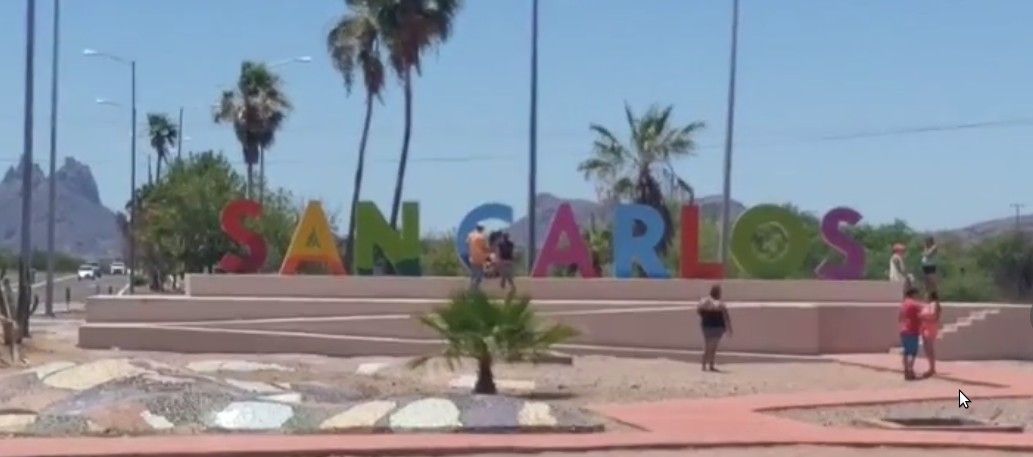
I grew up in a time in Australia where community meant something. In the 1970s & 80s in Australia, not having a lot of wealth meant that you teamed up with your friends, family, neighbors, etc. and used the power of a collective to buy things and share them. I mean who really needs to purchase their own Internet access and not share it with their neighbor? In the USA, we've been conditioned to think that sharing things with your community is a crime. It's not. Its a fiction that is pushed upon society to benefit the corporations. But back 35 or so years ago, this is how things were done.
I remember the advent of the video cassette recorder. When they first came out, they cost thousands and there were these new businesses that sprang up all over the place called "Video Rental Stores". 10+ years ago, they went the way of the dodo bird and the last bastion (Blockbuster) shuttered its doors. You might find the odd one left in some far flung part of the world, but Netflix and other streaming services put them out of business. But in the 1980s it cost thousands to have a membership and $20 or so to rent a tape. Yep, it was that expensive.
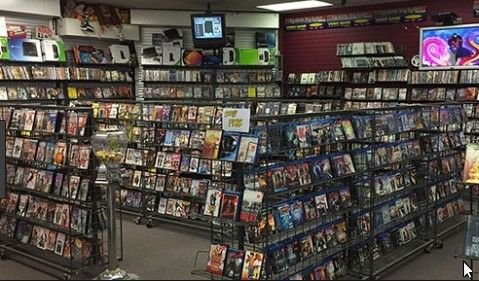
So our friends all came together as a community, pooled our resources and got into this, and then we'd all schedule a Saturday night event at someone's house and pool our money together and rent the tape, watch the movie, have a great time as a community, and since you had the tape for a few more days it often did the rounds with those that couldn't get to the event, and probably got copied over and over. I mean when resources are scarce, this is what happens. But the peripheral benefit was that we all became great friends, helped each other out, learned from each other from real experiences, and were better human beings for the experience.

Fast forward 35 years or so, and I'm living in USA and I don't know my neighbors by name, I don't share anything with anyone (other than on Steemit or Twitter or whatever). I don't live as frugally as I should, I over-consume, and I spend most of my working life trying to avoid and master the world of bankster debt enslavement, and reclaim my life again. When I get some control of my time, I find myself working out how to beat the system, live happier on less, save money, reduce enslavement and regain my freedom. When I look back, I'm trying to return to the fun times of the 1980s again (without all the big hair and sweatpants). But I miss community. I long for it, but few people in my circles had those life experiences.
It's interesting that I became involved in playing in cricket team 10 years ago and met a lot of other immigrants who had similar stories to mine. They too also had to use community to live on less, etc. I remember one time I was traveling on a bus with our team as we had won an "away game" about 2 hours from our homes, and on the bus I was talking with a guy who was a doctor from India. You'd think he would have more money to spend on whatever he wanted with his medical career, but surprisingly he shared more in common with me than I expected. We got talking and one thing led to another, and he told me about a place in Mexico that he takes his family to vacation, that was super cheap. The place was called "San Carlos". Its in Sonora, about a 5 hour drive south of Tucson, Arizona.
This was around the time of the global financial crisis. Money was on everyone's minds. The US economy was collapsing. And despite all the doom & gloom stories in the media, a family still needed a vacation. And despite all the scary stories about Mexico, drug cartels, human trafficking, etc. I couldn't get the conversation I had with this guy on the bus out of my head, so I told the family we were going to see this wondrous place I was told about, so we grabbed our passports, researched insurance for cars, immigration, etc. and then headed south.
That was my first time visiting San Carlos. It was wonderful. Nature at its finest. Costs were low. Enjoyment was high. Since then I took my in-laws who were visiting from Australia down there with the family so they could see what we saw. Incredible experience.
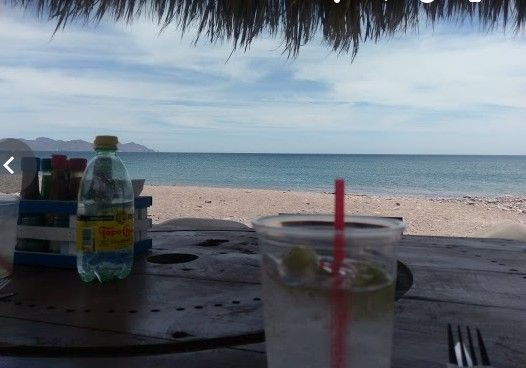
That was 10 years ago. Since then, the economy got better. Vacations turned to Europe, etc. and things looked up. But I never got the experience of visiting San Carlos out of my head. As privacy was eroded, and I felt more of a "subject" of the USA rather than a citizen, more of a number than a name, etc. I longed for the freedom that I originally found here, and remembered back to community in Australia, etc. I mean it was bearable because the economy was solid, etc. but I really wondered if life was actually getting better here, or the illusion of the Matrix was just more profound.
Last week my wife and I decided to take a week and go back to San Carlos again. Was it the same place we found 10 years ago? We had to see it with our own eyes.
Nothing had changed. Maybe a few more eateries were there to choose from. And they had built a new gym (great), and this time we could afford a nice house to stay in, etc. but the nature was the same, the dolphins still swam off the beach, the birds still amazed us with their formations, the fishing was still incredible, the sunrises and sunsets were spectacular. It was idyllic as it was 10 years ago.
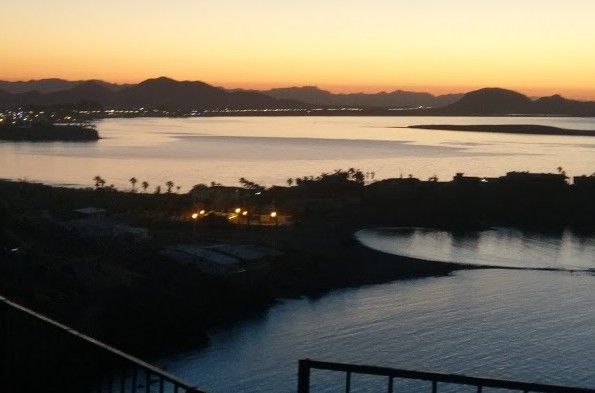
But I discovered something entirely unexpected. We got to meet some locals. US and Canadian ex-pats who now called San Carlos their home. It's common - they often call this place "gringo-ville" for good reason. But after talking to some locals, I realized I had come to a place that embraced true voluntarism. I'd read about this concept and I became fascinated with the anarcho-capitalist community and their ideals, but never thought it could work in modern society.
However I think it can. Here's what the locals do in San Carlos that amazed me. Its a community of about 8,000 ex-pats that have no governance. They have to run their own social services for the community. First, you have to pay cash for property there. There are no bank enslavement, so once you have a dwelling (whether that is a $750K mansion over looking the ocean, or a $150K condo, etc.) costs are minimal. One lady told us that her monthly entire expense bill is $400.00. I can believe it. Visits to the supermarket showed us average prices 50% of what we were used to paying in the USA.
One thing we noticed was that people were super healthy. Obviously a place like this tends to attract a lot of retirees. But they are not 80 yr olds. They are 50+ yr old retirees. In other words people retire far younger here. They use the local town of Guaymas and its hospitals and medical care with is really high quality. You can get to a world class hospital within a 1 hour drive of San Carlos, so no real problems. But because the costs of medical care is reasonable (ie. not US pricing), you can often pay for a major surgical procedure there for the price of a high deductible out of pocket expense you would get in the USA. It is unheard of to pay $50K for any procedure there. Think more like $5K. I mean my deductible is higher than that, and I don't have to pay $800 a month medical insurance for my family - better to save that money and put it into an interest bearing account and only need to use it if I have an adverse event. It's like living in a medical tourism town permanently.
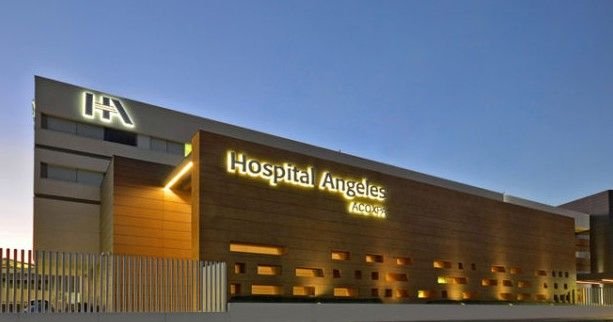
So the state doesn't get in between you and your doctor. Nice!
What if you need emergency ambulance services? San Carlos have a really creative and brilliant way to handle that. All the ex-pats pay a $150 a year fee into a collective fund that covers the cost of a local first stage triage service, just like EMT, etc. They have a local office, ambulance, etc. and retired doctors, nurses and other community members volunteer to be on call and support their community. It works! If you need help, they are there to administer it. Again, no government gets between you and medical care.
And then I heard of something really interesting. If you need postal services, the community rent a mail box out of Tucson, Arizona. Since there are always people going to and from Arizona to San Carlos, they have this thing where if you are part of the community, you can drop off and pick up mail from Arizona and bring it back to the community. They schedule this so that delivery is done frequently and you don't need to pay expensive costs for moving mail using DHL or other international courier services. Again, the community supports the community. You pay an annual fee, and you are part of the mail service.
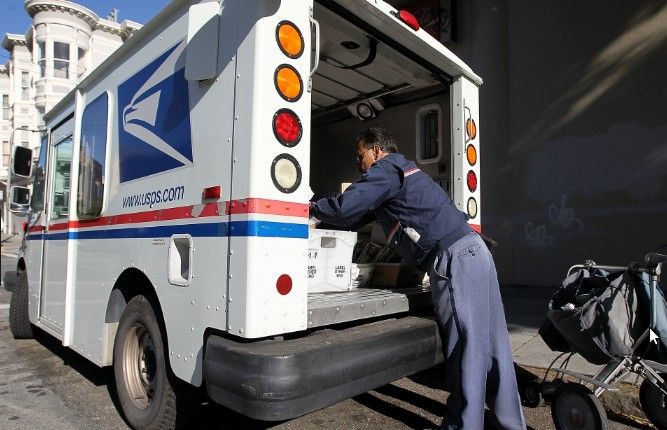
Finally while we were there, we constantly saw police around the town with "Policia Turistica" on their cars, etc.
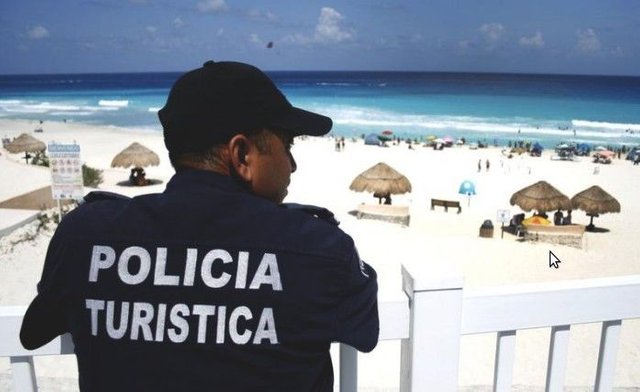
It seems that the community has partnered with local law enforcement to provide a level of security without impeding the freedom of the average person. We never felt unsafe, nor were we badgered or threatened by anyone in law enforcement there. I mean again, the community found a solution to a problem.
The people were way friendlier than in Phoenix. The safety was way better. They costs were way lower and the lifestyle cleaner, healthier, etc. I mean no real loss of anything here. The only thing is that you don't go there to work. Maybe if you are a digital nomad it would work, but you go there to relax. To return to a state of existence that is more natural and less twisted and destroyed by modern culture. Hence it's a retirement mecca.
My most amazing memory of this last trip was how a community can really work together to solve its problems without imposing its will on its people by way of the gun. They are so successful that many have created funds to help the local kids in Guaymas with education opportunities, and that becomes a focus on their massive amount of spare time. Giving back is important, and these people have found a way to live a full life, and give back their skills both to their own community, but to neighboring communities in such a way that doesn't impede on their lifestyles and yet makes everyone fill like they are in service to each other.
It can work. San Carlos is a demonstration of how this works today.
Nice post @k0d3g3ar.
Healthcare in the Philippines is a lot cheaper too. I live in Davao City, Philippines right now but I was raised in the San Francisco Bay Area.
~ @chrisrice
Thank you for your comment. I would love to get a sense of the cost of healthcare in the Philippines. For example, do you have an idea of the estimated cost of a hip replacement is? I realize that is a tricky number to be accurate on, but in the USA it is about $50K and I have been able to compare that against hospital facilities in Guadalajara, Mexico where the cost works out to more like $6-7K. My guess is that the Philippines is probably much like Mexico in terms of cost. Is that the case?
I am guessing it is similar to Mexico too @k0d3g3ar but I am honestly not 100% sure. I can give you another example though.
My wife entered labor early at 32 weeks and we found out about it during her weekly checkup. The doctor recommended that we hospitalize her so that they could delay the birth as much as possible.
So we hospitalized @emaferice in Davao Doctors Hospital, one of the best, if not the best hospitals in our area. She was given medicine to prevent contractions, remained in bedrest and was monitored 24 hours a day.
All-in-all, she was in bedrest for 13 days and our son was in the NICO for 5 days after that. Immediately after the birth, we stayed in their Presidential Suite for a couple days and that was a large part of the bill.
I was also staying in the hospital while my wife was hospitalized, and my wife and I stayed together in the hospital in one of their rooms while our son was in the NICU.
The bill was roughly $4,500 - $5,000 USD since we didn't enroll in health insurance ahead of time. I also forgot to mention that my wife got an epidural.
I don't know how much this would cost in the United States but I think I'd have to declare bankruptsy afterwords if I wanted to experience this in the United States without health insurance.
P.S. I hope this helps. If you know how much this would cost in the United States, please let me know!
Not sure if this is a realistic guide but my father-in-law was staying with us from Australia about 6 years ago, and had to be taken to the emergency room for a liver operation. It wasn't a huge operation, but it required 3 nights of hospital stay afterwards. The bill was about $2K for the surgeons, etc. and about $35K for the hospital. So I am thinking about $10K per night is a guide. That would put your wife's entire procedure, NICU costs & hospital stay at about $200K all up. Considering what you paid, that works out to about 2.5% of the US price. It is a pretty attractive proposition if you can plan out hospitalization.